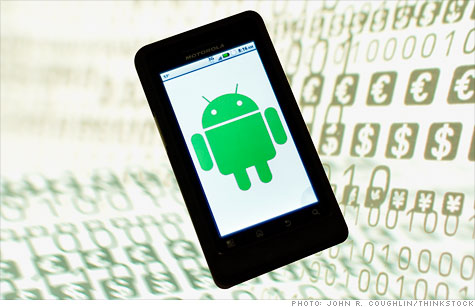Search News

The final tally is Google 3, Oracle 0 in the software giants' Android-vs-Java fight
NEW YORK (CNNMoney) -- Google will not have to pay Oracle anything for violating 37 Java copyrights, because they are not copyrightable, a federal judge ruled Thursday.
The ruling -- the final verdict in a landmark patent court case between two Silicon Valley titans -- affirms the industry's long-held belief that certain key bits of software code that help applications talk to one another are fair game for anyone to use.
Oracle (ORCL, Fortune 500) claimed that Google's (GOOG, Fortune 500) Android mobile operating system violated copyrights held by Oracle's Sun Microsystems division, which created the Java software that much of Android is based on.
Android originally used several lines of code that Sun had written for Java. That code, called application programming interfaces or APIs, are essentially a way for apps to communicate with the operating system. Since Java is an open-source software, its APIs are generally free and available for public use.
Judge William Alsup ruled Thursday that those APIs are not copyrightable because they are so basic and fundamental.
"To accept Oracle's claim would be to allow anyone to copyright one version of code to carry out a system of commands and thereby bar all others from writing their own different versions to carry out all or part of the same commands," Judge Alsup wrote in his decision. "No holding has ever endorsed such a sweeping proposition."
As a result, Alsup threw out a judgment handed down by a jury last month that said Google violated the copyrights on 37 patents owned by Oracle. He also denied Google's pursuit of a mistrial, calling the issue "moot" since he ultimately ruled in the company's favor. Google will owe no damages to Oracle.
In a separate part of the case, a jury last week cleared Google of violating any of Oracle's patents with Android.
For those keeping score at home, that's Google 3, Oracle 0.
"The court's decision upholds the principle that open and interoperable computer languages form an essential basis for software development," said a Google spokesman. "It's a good day for collaboration and innovation."
Legal experts say that the judge's ruling maintains the status quo.
"It affirms what most people in the software industry thought all along: APIs are just functional code that is outside the scope of copyright," said Mark Webbink, a law professor at Duke who has been closely following the case. "A ruling for Oracle was going to turn the industry on its head."
Oracle is expected to appeal Thursday's ruling, though the company declined to comment for this story.
The corporate software giant picked a fight with Google because it felt that Android is threatening the Java platform it got as part of its blockbuster $7.4 billion Sun purchase. Android is an offshoot of Java, but its interface and functionality is unique. Code written for Java is not inherently compatible with Android -- and as Android grows, its version of Java threatens to become the dominant one.
Oracle wants to force Google to play by its rules and make Android compatible with the rest of Java. Then, developers would be able to write apps around Java's programming interfaces that would also run seamlessly on Android devices.
New technologies like HTML5 are already making Java less important on the Web. Oracle wants to make sure it doesn't lose the rapidly growing mobile market as well. ![]()